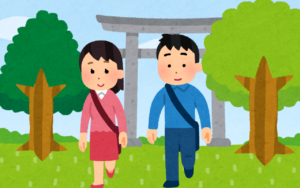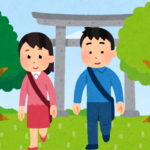
There is a saying, "Study as if you would live forever, and live as if you would die tomorrow."
It is said to have been written by American astronomer Maria Mitchell.
Later, Gandhi reversed the order and stated, "Live as if you will die tomorrow and learn as if you will live forever," which is more famous.
I feel that "Keep studying, and live each day with care" and "Live each day with care, and keep learning," although they are similar words, give a very different impression to me.
We see the world through the filter of ourselves. The filter is made up of the experiences we have had in our lives and the knowledge we have acquired through our studies.
In other words, the filter is a person's sense of values.
To "live each day with care" means to live one's life with care based on those values. If this is the case, it is important to learn first.
Therefore, it is more fitting that "learning" comes first and "living" comes after.
In any case, it is important to continue learning throughout one's life.
The average life expectancy is steadily increasing, if not reaching 100 years.
According to the Ministry of Health, Labor and Welfare, the average life expectancy of a 65-year-old male is 20 years. In other words, it is now normal to live to be about 85 years old.
It is too early to say that people retire at age 65 and live the rest of their lives.
We cannot just live in idleness for the remainder of our 20-year lives.
The Japan Geriatrics Society and the Japan Geriatrics Society have proposed that the definition of the elderly be 75 years of age or older, and that the period from 65 to 75 years of age be considered a period of preparation for old age as a "quasi-elderly" period.
I think this idea is very realistic.
I am 65 years old, so if I live to be about 85 years old, which is the average, I have 20 years left to live.
Twenty years is the same amount of time it takes for a baby to reach adulthood.
It would be a waste to spend that time in vain.
To lead a rich life, lifelong learning is of the utmost importance.
The Ministry of Education, Culture, Sports, Science and Technology (MEXT) has issued a report entitled "Lifelong Learning in a Longevity Society" (subtitled "The 100-Year Life Era: The Happiness of Learning at Any Age in a Happy Aging Society").
The MEXT report has been criticized for many things, but this report is quite good.
Lifelong learning" is often used in the sense of hobbies and culture, and is often thought of as self-contained learning, but I can greatly sympathize with the idea of enriching one's life by viewing learning as a cyclical process that gives back to society.
I will also use these ideas as a guide in my own lifelong learning efforts.









